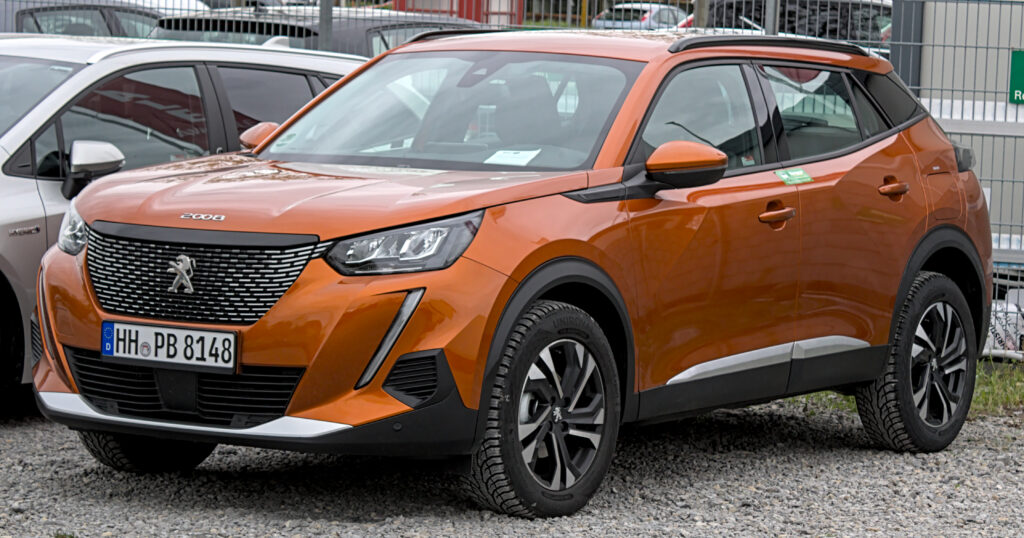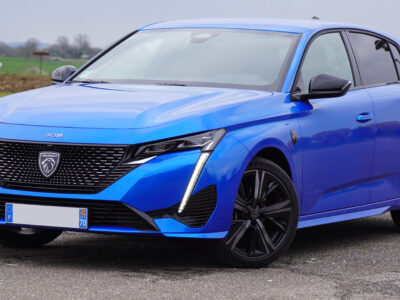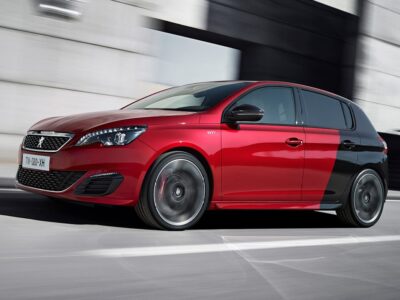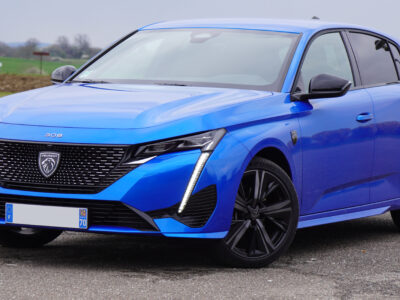
Are Peugeot 2008 Reliable? The Complete Real-World Reliability Guide

When we talk about the Peugeot 2008, we’re talking about a small crossover with big ambitions. It’s stylish, nimble, economical, and well-equipped—qualities that have turned it into a favourite across Europe and South America. But here’s the million-dollar question: is the Peugeot 2008 actually reliable? Or is it the kind of car that behaves until the warranty expires, only to reveal a secret life of electrical tantrums?
In this long-form reliability guide, we’re going to analyse the Peugeot 2008 from every angle: engines, transmissions, electrics, common faults, ownership costs, service intervals, and real-world owner experiences. Think of this as the version of the truth that every buyer wishes they had before signing papers—or every owner wishes they’d read before their first surprise fault warning.
We’ll break it all down casually, with depth, honesty, and that “we’ve-been-there-too” tone. Let’s dive in.
- Understanding Peugeot 2008 Reliability: The Foundation
- A Quick Look at Peugeot 2008 Generations
- So… Are Peugeot 2008 Reliable Overall?
- Reliability by Engine Type
- Petrol Engines Reliability
- Diesel Engines Reliability
- Electric Peugeot e-2008 Reliability
- Common Issues That Affect Peugeot 2008 Reliability
- Engine-Related Issues
- Electrical and Electronics Issues
- Transmission Reliability
- Suspension and Steering Reliability
- Interior Durability
- Real-World Owner Reviews: What People Actually Say
- Cost of Ownership: How Reliability Affects Your Wallet
- Maintenance Tips to Improve Peugeot 2008 Reliability
- Which Peugeot 2008 Model Is the Most Reliable?
- When the Peugeot 2008 Is Reliable
- When the Peugeot 2008 Is Not Reliable
- Should You Buy a Used Peugeot 2008?
- Final Verdict: Are Peugeot 2008 Reliable?
- FAQs About Peugeot 2008 Reliability
Understanding Peugeot 2008 Reliability: The Foundation
Reliability isn’t just about “does it break?”—it’s about patterns. We assess reliability through:
- Engine durability
- Transmission longevity
- Electrical system stability
- Cost of maintenance and repairs
- Parts availability
- Recurring faults across model years
- Real-world owner feedback
The Peugeot 2008 shows a mixed but overall positive reputation—better than older Peugeots, but with a few weak links that keep appearing across forums, Facebook groups, and mechanic workshops.
A Quick Look at Peugeot 2008 Generations
Understanding reliability means knowing which version we’re talking about.
First Generation (2013–2019)
A compact crossover built on the 208 platform. Main engines included the PureTech petrols, 1.2 VTi, 1.6 THP, and 1.6 BlueHDi diesels.
Strengths:
- Fuel economy
- Solid diesel durability
- Comfortable ride
Weak points:
- Early PureTech timing belt degradation
- Electrical gremlins
- EP6/THP carbon buildup
Second Generation (2020–Present)
New design, new tech, new engines, and a much more modern feel. Includes PureTech petrol, BlueHDi diesel, and e-2008 electric.
Strengths:
- Improved build quality
- Better engines
- Safer and more refined
Weak points:
- PureTech wet timing belt concerns remain
- Sensor/electronic sensitivity
- Higher repair costs due to complexity
So… Are Peugeot 2008 Reliable Overall?
Short answer: Mostly yes, but with caveats.
Long answer: It depends heavily on engine choice and maintenance history.
Owners of the diesel versions often praise their 2008 for being rock-solid, economical, and durable. Petrol PureTech owners? Many feel the same—if the timing belt hasn’t given them heartache.
Think of it like dating someone who’s charming and stylish but occasionally moody. The Peugeot 2008 is reliable enough for daily life, but you’ll want to know its quirks.
Reliability by Engine Type
Let’s get into the heart of the matter: engines make or break reliability.
Petrol Engines Reliability
PureTech 1.2 (82, 110, 130 hp)
The most widespread Peugeot engine—and the one with the biggest reputation.
Pros:
- Punchy performance
- Great fuel economy
- Widely available parts
- Loved by most owners
Cons:
- Timing belt disintegration in early years
- Intake clogging
- Occasional oil leaks
Many pre-2018 models used a wet belt design that degraded prematurely due to oil contamination. Peugeot revised the design, but some issues persist—regular oil changes are non-negotiable.
1.6 THP (Older Models)
Shared with MINI and BMW, famous for:
- Turbo punch
- Carbon buildup
- High-pressure fuel pump issues
This engine can be reliable—but only with obsessive maintenance.
You may be interested in reading Is Peugeot 2008 Bigger Than 3008? A Full Comparison of Size, Space & Everyday Usability
Is Peugeot 2008 Bigger Than 3008? A Full Comparison of Size, Space & Everyday UsabilityVerdict for Petrol
Good engines, but maintenance-sensitive. If you buy a used one, check belt history and oil change frequency.
Diesel Engines Reliability
1.6 BlueHDi
Widely regarded as one of Peugeot’s strongest engines.
Pros:
- Excellent longevity
- Low fuel consumption
- Reliable DPF with proper use
Cons:
- AdBlue system sensitivity
- EGR valve failures
1.5 BlueHDi (Newer Models)
Even better, smoother, and more efficient. Very few widespread issues reported so far.
Verdict for Diesel
The most reliable Peugeot 2008 engine choice, especially for long-distance drivers.
Electric Peugeot e-2008 Reliability
A newer addition, but surprisingly solid.
Pros:
- No timing belt issues
- Simple drivetrain
- Quiet and smooth
- Fewer moving parts
Cons:
- Range degradation over many years
- Occasional software glitches
- Expensive battery module replacement
Still, electric versions tend to be more reliable than combustion options.
Common Issues That Affect Peugeot 2008 Reliability
Every car has weak spots—here are the ones you’ll want to know.
Wet Belt Wear (PureTech Engines)
The biggest headline issue. Symptoms include:
- “Oil pressure low” warnings
- Squealing noise
- Rough idle
- Slow acceleration
Early replacement is often the safest option.
Turbo Failure
Usually caused by:
- Dirty oil
- Low oil pressure
- Restricted lubrication
- Driving with degraded timing belts
Oil Leaks
Typically from rocker cover, sump gasket, or turbo pipes.
Electrical and Electronics Issues
Peugeot is notorious for sensitive electronics—improved dramatically after 2020, but still present.
Common Complaints
- Touchscreen freezing
- Parking sensors failing
- Automatic folding mirrors malfunctioning
- Key not detected
- Random warning lights
Most are minor but annoying rather than catastrophic.
Transmission Reliability
Two major transmissions appear in the 2008:
EAT6 / EAT8 Automatic
Very reliable Japanese Aisin gearbox.
Smooth, durable, rarely problematic.
ETG / EGC Robotised Manual
Avoid if possible.
Juddery, slow, and less reliable.
Manual Gearbox
Solid overall, but clutch wear can appear early for city drivers.
Suspension and Steering Reliability
The 2008 uses simple, durable suspension.
You may be interested in reading Is Peugeot 2008 Bigger Than 3008? A Full Comparison of Size, Space & Everyday Usability
Is Peugeot 2008 Bigger Than 3008? A Full Comparison of Size, Space & Everyday Usability Is Peugeot 2008 a Good Family Car? The Complete 2025 Guide for Real Families
Is Peugeot 2008 a Good Family Car? The Complete 2025 Guide for Real FamiliesUsual Issues
- Front drop-links wear
- Rear shocks soften over time
- Steering column noise
Not major failures—just standard wear-and-tear.
Interior Durability
Peugeot interiors look fantastic but have mixed durability.
Strengths
- Seats hold up well
- Dashboard lasts
- Good materials in newer models
Weak Spots
- Early models: peeling buttons
- Sticky plastics in hot climates
- Touchscreen sensitivity
Real-World Owner Reviews: What People Actually Say
We’ve gone through hundreds of forums, YouTube reviews, and owner groups—here’s the summary:
Positive trends:
- Great drivability
- Low running costs
- Comfortable
- Strong diesel engines
- Better than older Peugeot models
Negative trends:
- PureTech timing belt anxiety
- Electrical warning lights
- Expensive dealer repairs
- Sensors randomly failing
Overall sentiment: mostly satisfied, but wary of known faults.
Cost of Ownership: How Reliability Affects Your Wallet
Owning a Peugeot 2008 can be economical—if you maintain it.
Typical Yearly Costs
- Servicing: moderate
- Parts: affordable
- Fuel: excellent on diesel and PureTech
- Tyres: mid-range
- Insurance: low-to-moderate
Unexpected Costs to Watch For
- Timing belt replacement
- EGR failures
- AdBlue injector issues
- Catalytic converter repairs
Maintenance Tips to Improve Peugeot 2008 Reliability
If we had to give a new owner a cheat sheet, here’s what we’d tell them.
Follow These Rules Religiously
- Use quality oil and change it every 8,000–10,000 miles
- Inspect the timing belt early on PureTech engines
- Drive longer distances occasionally to protect the DPF
- Keep the AdBlue tank above ¼
- Update software regularly
- Clean intake system every 40k miles
- Replace spark plugs earlier than Peugeot suggests
Which Peugeot 2008 Model Is the Most Reliable?
After comparing engines, generations, and owner reports:
The Most Reliable Peugeot 2008 Versions
- 1.5 BlueHDi Diesel (2020+) – best overall
- 1.6 BlueHDi Diesel (2015–2019) – proven long-term reliability
- e-2008 Electric – minimal mechanical issues
The Least Reliable Versions
- 1.2 PureTech (2014–2017) – early wet belt issues
- 1.6 THP petrol – carbon buildup, HPFP issues
- ETG automatic models – jerky and troublesome
When the Peugeot 2008 Is Reliable
Let’s be fair—the car shines in many reliability scenarios.
It’s reliable when:
- It’s serviced on time
- It has the updated timing belt
- It’s a diesel model
- Electronic modules have received latest software
- It hasn’t been abused with long oil intervals
When cared for, this crossover can easily pass 200,000 km without drama.
When the Peugeot 2008 Is Not Reliable
The Peugeot 2008 struggles when:
- Owners push service intervals too far
- Cheap oil and filters are used
- The car is driven only on short trips
- Timing belt is ignored
- Software is outdated
- Sensors are neglected
It’s a modern car—essentially, you can’t treat it like a 1995 Toyota.
Should You Buy a Used Peugeot 2008?
Absolutely—but only if you know what to avoid.
Buy if:
- Diesel model
- Proper service history
- Timing belt already replaced
- No warning lights on test drive
Avoid if:
- ETG gearbox
- Patchy service history
- Belts not replaced at recommended intervals
- Excessive oil consumption
Final Verdict: Are Peugeot 2008 Reliable?
So, the million-dollar answer:
Yes, the Peugeot 2008 is reliable—especially the diesel and newer models—
but petrol PureTech versions require careful maintenance due to timing belt and sensor-related issues.
In the right configuration, with proper upkeep, the Peugeot 2008 can be a loyal companion, delivering comfort, efficiency, and low running costs for years.
Take care of it, and it will take care of you.
FAQs About Peugeot 2008 Reliability
1. Is the Peugeot 2008 a reliable car overall?
Yes, particularly the diesel models and second-generation 2020+ versions.
2. What is the most reliable Peugeot 2008 engine?
The 1.5 BlueHDi (diesel) is widely considered the most dependable.
3. Is the 1.2 PureTech engine reliable?
It can be—if the timing belt has been maintained and replaced early.
4. Does the Peugeot 2008 have electrical problems?
Some models do, mostly minor: touchscreen, sensors, and warning lights.
You may be interested in reading Is Peugeot 2008 Bigger Than 3008? A Full Comparison of Size, Space & Everyday Usability
Is Peugeot 2008 Bigger Than 3008? A Full Comparison of Size, Space & Everyday Usability Is Peugeot 2008 a Good Family Car? The Complete 2025 Guide for Real Families
Is Peugeot 2008 a Good Family Car? The Complete 2025 Guide for Real Families Nissan Leaf Reliability: A Complete, Real-World Owner-Focused Guide
Nissan Leaf Reliability: A Complete, Real-World Owner-Focused Guide5. Is the e-2008 electric model reliable?
Yes—fewer mechanical parts mean fewer failure points.
If you want to know other articles similar to Are Peugeot 2008 Reliable? The Complete Real-World Reliability Guide you can visit the category Blog.
Leave a Reply






More content of your interest